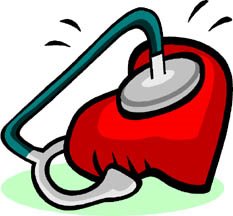 World-wide, some 25 million people take statins, including Zocor, Mevacor, Crestor, Pravachol and Vytorin to lower their cholesterol. Could they also be lowering their IQ at the same time?
World-wide, some 25 million people take statins, including Zocor, Mevacor, Crestor, Pravachol and Vytorin to lower their cholesterol. Could they also be lowering their IQ at the same time?In a recent Wall Street Journal article, Orli Etingin, vice chairman of medicine at New York Presbyterian Hospital and the director of the Iris Cantor Women's Health Center, declared that, "This drug makes women stupid." She told of a typical patient in her 40s, unable to concentrate or recall words. Tests found nothing amiss, but when the woman stopped taking Lipitor, the symptoms vanished. When she resumed taking Lipitor, they returned. I've seen this in maybe two dozen patients," Dr. Etingin said later, adding that they did better on other statins. "This is just observational, of course. We really need more studies, particularly on cognitive effects and women."
Researchers at the University of California at San Diego are nearing completion of a randomized controlled trial examining the effects of statins on thinking, mood, behavior, and quality of life. Separately, the UCSD researchers are collecting anecdotal experiences of patients, good and bad, on statins; memory problems are the second most common side effect, after muscle aches, in about 5,000 reports to date.
"We have some compelling cases," says Beatrice Golomb, the study's lead researcher. In one of them, a San Diego woman, Jane Brunzie, was so forgetful that her daughter was investigating Alzheimer's care for her and refused to let her babysit for her 9-year-old granddaughter. Then the mother stopped taking a statin. "Literally, within eight days, I was back to normal -- it was that dramatic," says Mrs. Brunzie, 69 years old.Doctors put her on different statins three more times. "They'd say, 'Here, try these samples.' Doctors don't want to give up on it," she says. "Within a few days of starting another one, I'd start losing my words again," says Mrs. Brunzie, who has gone back to volunteering at the local elementary school she loves and is trying to bring her cholesterol down with dietary changes instead."I feel very blessed -- I got about 99% of my memory back," she adds. "But I worry about people like me who are starting to lose their words who may think they have just normal aging and it may not be."
The brain is largely made of of cholesterol, much of it in the myelin sheaths
 that insulate nerve cells and in the synapses that transmit nerve impulses. Lowering cholesterol could slow the connections that facilitate thought and memory. Statins may also lead to the formation of abnormal proteins seen in the brains of Alzheimer's patients.
that insulate nerve cells and in the synapses that transmit nerve impulses. Lowering cholesterol could slow the connections that facilitate thought and memory. Statins may also lead to the formation of abnormal proteins seen in the brains of Alzheimer's patients.The cognitive changes can affect men as well as women. But women on statins are often simultaneously losing estrogen due to menopause, which can also cause cognitive changes. "Women are getting hit with a double whammy," says Elizabeth Lee Vliet, a women's health physician in Tucson, Ariz., who has a background in neuroendochronology.
According to the "LDL hypothesis," lowering bad cholesterol prevents plaque buildup in the arteries. And that, in theory, reduces the risk of heart attack and stroke. Vytorin -- which combines Merck's Zocor, a statin, and Schering-Plough's Zetia, a new class of LDL-lowering medicine -- does lower bad cholesterol but has also been proven to thicken the plaque in the carotid arteries (in the neck) of patients more than in those who took Zocor alone -- apparently contradicting the "LDL hypothesis." A blocked carotid artery can lead to restricted blood flow to the brain and a stroke.
Another cholesterol lowering drug called, Torcetrapib (Pfizer) represented a new class of cholesterol medicine designed not only to lower LDL cholesterol but also to boost HDL, or "good" cholesterol. But the results of two large-scale studies linked torcetrapib to deaths and showed it failed to prevent the buildup of arterial plaque. Soon after, Pfizer abandoned the project.
Myth: High cholesterol Goes Hand In Hand With Heart Disease
In the Framingham heart study done near Boston that spanned 30 years , the researchers concluded that high cholesterol was a risk factor for heart
 disease, but when one really dissects the data, one must question how they came to that conclusion. For example, when the participants of the study are plotted on a graph it clearly shows that those with cholesterol levels between 182 and 222 did not survive as long as those with higher cholesterol levels of between 222 and 261. The study shows that about half the people with heart disease had low cholesterol, and half the people without heart disease had high cholesterol.
disease, but when one really dissects the data, one must question how they came to that conclusion. For example, when the participants of the study are plotted on a graph it clearly shows that those with cholesterol levels between 182 and 222 did not survive as long as those with higher cholesterol levels of between 222 and 261. The study shows that about half the people with heart disease had low cholesterol, and half the people without heart disease had high cholesterol. Most studies have found that for women, high cholesterol is not a risk factor for heart disease at all - in fact, the death rate for women is five times higher in those with very low cholesterol. In a Canadian study that followed 5000 healthy middle-aged men for 12 years, they found that high cholesterol was not associated with heart disease at all. And in another study done at the University Hospital in Toronto that looked at cholesterol levels in 120 men that previously had heart attacks, they found that just as many men that had second heart attacks had low cholesterol levels as those that had high.
Why is it that over half the people who die of heart disease do not have high cholesterol? Could it be that cholesterol is not the main problem?
A personal note
My parents were taking Zocor for a number of years. At $60 per month, it was quite expensive. My mother died of Alzheimer's disease last year. My father has Parkinson's related dementia too. Before I took him off statins, my dad was experiencing muscle pain, numbness, memory loss, muscle weakness and many other side effects listed on the Zocor label. Although they claim that these side effects are rare, I believe that they are just under reported. Read the article below on, Is Your Doctor in Denial?
Other Side Effects Of Statins
Talk to your physician about the side effects of statin drugs which might include:
Inability to concentrate
Depression
Confusion
Impotence
Amnesia
Lowered sex drive
Disorientation
Violent BehaviorWeakened immune system
Shortness of breath
Liver damage
Fatigue
Kidney failure
Nerve pain
SuicideDeath
Muscle weakness
Rhabdomyolysis (painful bursting of muscle cells)
Getting Less Of What You Need
Statins block the production of Co enzyme Q10 in your body. Why is that so dangerous? Coenzyme Q10 is very important for heart function, it acts as an antioxidant in conjunction with Vitamin E, and it is important in energy metabolism in the mitochondria of muscles, which is why muscle pain is a common side effect of statin drugs. Your heart is one of your biggest and most important muscles. If your heart is weakened by the lack of Co enzyme Q10, statins could actually cause you to have a heart attack. Co enzyme Q10 is important for healthy brain function as well, and when Co enzyme Q10 levels are low, through statin use or otherwise, memory is affected.
Lower Your Chance Of Heart Disease Naturally
Eskimos, who eat a traditional diet of almost pure saturated fat (whale and seal blubber) have almost a zero incidence of heart disease. Danes, on the other hand, eat a high fat diet but have a much higher occurrence of heart disease. What's the difference? Eskimos eat a high-fat, high-cholesterol diet but one rich in fish, especially those containing the omega-3 fatty acids EPA and docosahexaenoic acid (DHA). These fatty acids lower plasma of very low density lipoproteins (VLDL) and triglyceride (a type of fat in your blood) concentrations by depressing synthesis of triglycerides in the liver.
If you are not eating at least 3 meals a week that includes fatty, oily fish, you might want to consider taking some pharmaceutical-grade fish oil pills. These are more concentrated and purer than your regular grocery store brand. They are also less likely to give you the "fish burps" and you will have to take half as many pills because of the concentration.
Researchers at University Hospital in Basel Switzerland did a statistical analysis, called a “meta-analysis” of 97 double-blind, controlled studies, involving 137,140 people who received a heart-disease “intervention (statins, niacin, two other pharmaceutical drugs, diet or fish oil) and 138,976 who received a placebo. The remarkable findings: Fish oil reduced cardiac deaths by 32 percent; statins by 22 percent. Fish oil cut deaths from all causes by 23 percent; statins, by 13 percent. That means, say experts, that omega-3 fish oil was 45 per more effective than statins in preventing heart fatalities and 77 percent better at saving lives in general. (Marco Studer., Arch Intern Med 2005; 165:725-730)
Fish oil’s strong anti inflammatory activity is also a prime reason for its cardiovascular protection, say the Swiss scientists. Other reasons fish oil might beat statins: Omega-3s help regulate heart rhythms, preventing sudden cardiac deaths; thwart formation of blood clots; improve endothelial and vascular function, reduce triglycerides, lower blood pressure, and raise good HDL cholesterol. (Mori TA, Curr Atheroscler Rep 2004 Nov; 6(6): 461-7)
Fish oil has NONE of the side effects found with statins.
First Step Therapy
Doctors have always been encouraged by the medical community to help their patients to become heart healthy by prescribing healthy lifestyle changes like diet and exercise prior to beginning any medication at the early signs of these diseases. This is referred to as First-Step Therapy. Physicians have for the most part been very discouraged with the results of First-Step Therapy and have a tendency to simply write a prescription without offering their patients an opportunity to improve their clinical situation with healthy lifestyle changes. This is happening because physicians believe that their patients will simply not be able to make these lifestyle changes or even if they do, they will not be that effective. This attitude along with the tremendous amount of marketing by the pharmaceutical industry directly to the patient has led individuals to believe that their best option is to just begin taking medication. However, it is becoming more evident each and every day that there is also an inherit risk with taking any medication. In fact, adverse drug reactions to properly prescribed and properly administered medication are the FOURTH leading cause of death in this country.
Fish oil’s strong anti inflammatory activity is also a prime reason for its cardiovascular protection, say the Swiss scientists. Other reasons fish oil might beat statins: Omega-3s help regulate heart rhythms, preventing sudden cardiac deaths; thwart formation of blood clots; improve endothelial and vascular function, reduce triglycerides, lower blood pressure, and raise good HDL cholesterol. (Mori TA, Curr Atheroscler Rep 2004 Nov; 6(6): 461-7)
Fish oil has NONE of the side effects found with statins.
First Step Therapy
Doctors have always been encouraged by the medical community to help their patients to become heart healthy by prescribing healthy lifestyle changes like diet and exercise prior to beginning any medication at the early signs of these diseases. This is referred to as First-Step Therapy. Physicians have for the most part been very discouraged with the results of First-Step Therapy and have a tendency to simply write a prescription without offering their patients an opportunity to improve their clinical situation with healthy lifestyle changes. This is happening because physicians believe that their patients will simply not be able to make these lifestyle changes or even if they do, they will not be that effective. This attitude along with the tremendous amount of marketing by the pharmaceutical industry directly to the patient has led individuals to believe that their best option is to just begin taking medication. However, it is becoming more evident each and every day that there is also an inherit risk with taking any medication. In fact, adverse drug reactions to properly prescribed and properly administered medication are the FOURTH leading cause of death in this country.
Sources:
Statins May Spur Dementia
Is Your Doctor in Denial?
Can a Drug That Helps Hearts Be Harmful to the Brain?
In wake of Vytorin study, some heart doctors reassess LDL factor
Diet Comparable To Statin Drugs In Lowering LDL Cholesterol
Omega-3 fatty acids reduce mortality risk more effectively than statin drugs
 My StumbleUpon Page
My StumbleUpon Page






4 comments:
i think my realtive's development of parkinson's disease is directly related to his prior 4 yrs of Lipitor therapy. I have heard from many others who think the onset of a neurodegenerative disease is related to fat soluble statins. And am personally acquainted with 4 other individuals who have developed parkinson's following years of lipitor therapy. Are these instances of a genetic predisposition being triggered by a statin? who knows, no one has studied that possibility. Statins do more than deplete the body of CoEnzyme Q10. Thru its depression of isoprenoid biosynthesis that leads to decreased CoQ10 production, statins have been found to increase hyperphosphorylation of tau (found in neurodegenerative diseases, and thought to be part of the pathophysiology of these diseases); statins in cellular experiments, lead to impairment of synthesis of selenoproteins, necessary for many biological functions, including antioxidant functions within the brain; statins interrupt the pathway to production of dolichols, necessary for proper functioning of many proteins. Cholesterol makes up most of the dry weight of the brain and is the major component in the mylein sheathing , covering all nerves. There is a web site, www.spacedoc.net, founded and maintained by a physician/astonaut who suffered transient amnesia from Lipitor therapy. this web site includes a forum for those individuals who are experiencing adverse effects to statins.
In "Do Statins Make You Stupid?" nothing was said about niacin, although the word "niacin" was listed. I've read much about niacin therapy on www.cholesterolscore.com
Please take a look at cholesterolscore.com , and comment as to whether the info, there, is accurate.
I take 40 mg. of niacin every day as a part of my multivitamin. I think it is one of the essentials of a healthy body. It can lower your cholesterol, but can it lower your chances of dying of a heart attack?
The April 2005 issue of the prestigious Archives of Internal Medicine published a review of the effects of various lipid lowering regimens on overall mortality and mortality from coronary heart disease. While niacin can lower your cholesterol, it has "appeared to provide insignificant benefits" as far as lowering your chances to die from a heart attack. Only statins and omega-3 fatty acids significantly lowered both overall and coronary heart disease mortality risk during the trial periods.
The risk of overall mortality was reduced by 13 percent by statins. Mortality risk was reduced 23 percent by omega-3 fatty acid supplements - Omega-3 fatty acids provided almost double the benefit of statins. When the risk of mortality from heart disease alone was analyzed, the use of statin drugs and omega-3 fatty acids were found to lower the risk by 22 and 32 percent, respectively.
The superiority of omega-3 supplements in lowering the risk of overall and cardiac mortality cannot be explained by an ability to reduce cholesterol. Cholesterol reduction from Omega-3 averaged 2 percent in this meta-analysis compared to an average reduction of 20 percent achieved via the use of statins. The protection provided by omega-3 fatty acids against heart arrhythmias, along with their antithrombotic and anti-inflammatory properties may be responsible for the mortality risk reduction suggested by this review.
As I have said before, heart disease is not a disease of high cholesterol. It is a disease of inflammation of the arteries. Nothing wrong with lowering high cholesterol but over half the people who die of heart attacks have low cholesterol. You would be much better off focusing on diet, exercise and fish oil supplements in my opinion.
For more information on why cholesterol is not the enemy, go to
The Cholesterol Conspiracy
Debunking The Cholesterol Myth
My name is Wendy Rosko and i would like to show you my personal experience with Zocor.
I am 60 years old. Have been on Zocor for 8 days now. MD stopped med when I reported muscle pain and sent me for a blood test to measure muscle inflamation. Off med for 2 days and still having muscle cramps in arms and legs. No generalized aching.
I have experienced some of these side effects -
had leg cramps which I didn't realize were a side effect. On day 8 I woke up feeling as if I had the flu - bad muscle aches and cramps.
I hope this information will be useful to others,
Wendy Rosko
Post a Comment